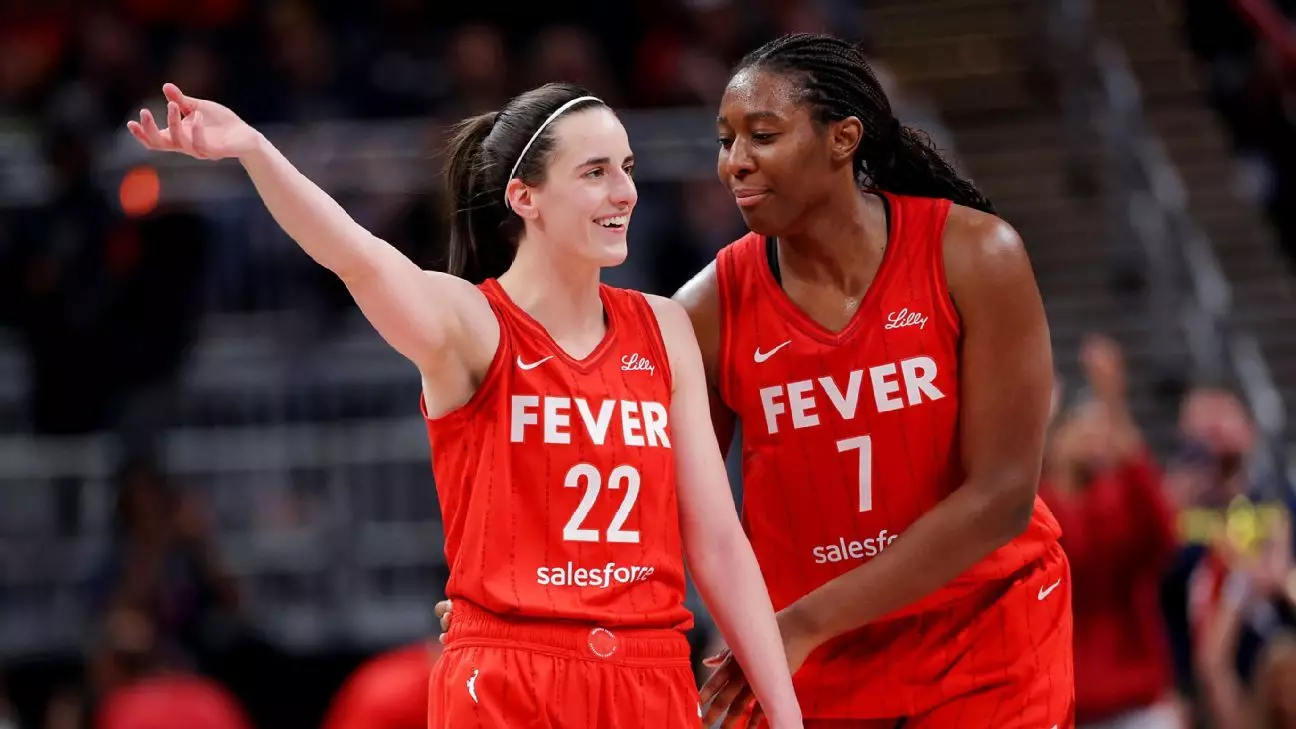The recent selection of the WNBA All-Star teams, held in Indianapolis, was more than just a showcase of the league’s top talent; it was a glaring reflection of organizational missteps and a fractured leadership approach. Instead of a smooth, fair draft process that celebrates the best players in the league, what unfolded was a messy, often petty contest driven by political maneuvering, rivalry, and even a misguided attempt at strategic team-building. The choices made by captains Caitlin Clark and Napheesa Collier exposed not only their personal biases but also the league’s failure to establish a transparent and nurturing environment for all star selections.
The fact that the captains, arguably the most influential voices in the process, opted to engage in behind-the-scenes trades and subtle power plays—like swapping coaches based on team records—exposes a disturbing inability of the league to prioritize fairness. Instead of fostering a spirit of unity and celebration, the draft process revealed a tendency towards favoritism and organizational politics. Such actions fall under the league’s broader failure to create systems that elevate the sport without allowing individual agendas or rivalry to taint the broader competitive spirit.
Team Building or Political Espionage? The Problem With Player and Coach Selections
One of the most troubling aspects of the draft was the apparent favoritism towards certain players, particularly those with existing relationships or influential legacies. Clark’s pick of her Fever teammates—Aliyah Boston and Kelsey Mitchell—felt more like clique formations than strategic team-building for a showcase meant to highlight the league’s brightest stars. Similarly, Collier’s selection of Breanna Stewart, a player with an undeniable talent but also a history intertwined with personal alliances, further underscores the league’s skewed approach to team assembly.
This isn’t simply a matter of selecting the best players; it exposes the WNBA’s inability to yet foster a level playing field, where meritocracy should be the guiding principle. Instead, there’s an alarming tendency for emotional attachments, past connections, and regional allegiances to influence decisions that are meant to be about showcasing the league’s overall talent. This undermines the credibility of the event and diminishes the integrity of the league’s governance.
The decision to swap coaches—replacing Cheryl Reeve with Sandy Brondello—was another misplaced move rooted in perceived strategic advantages instead of fairness. It highlights how the league’s leadership often prioritizes short-term tactical gains over the integrity of the game and the importance of exemplary management. Such decisions reflect a broader league culture that is reactive rather than proactive, often misjudging what strengthens the sport’s competitive and cultural fabric.
The Flawed Symbolism of “Selection” in an Uneven Playing Field
What is particularly insidious about the draft’s setup is the subtle implication that certain players or coaches are more deserving based on political considerations rather than actual performance. When selections are influenced by behind-the-scenes negotiations—such as Clark’s initial offer to swap Satou Sabally for Breanna Stewart—it erodes the fundamental fairness that should underpin a league’s all-star event.
This approach fosters a win-at-all-costs mentality among captains and coaches alike, aligning with broader league issues where narratives of meritocracy are often secondary to strategic alliances. The league’s failure to establish a truly independent or impartial draft process diminishes the prestige of the All-Star game. When competition is tainted by favoritism, the event loses its symbolic power: a true celebration of talent and sportsmanship.
Furthermore, the league’s decision to hold the All-Star festivities—including the 3-Point Contest and Skills Challenge—at a venue like Gainbridge Fieldhouse, home of the Fever, feels disconnected from the underlying chaos. It’s a reminder that the league continues to prioritize spectacle over substance, often sacrificing integrity for marketing or political convenience. This disconnect threatens the very foundation of what the All-Star game should stand for—a unifying moment for the league’s best talent, not a battleground of cliques and political antics.
A Call for Leadership Reform
The chaos surrounding the draft process should serve as a wake-up call for the league’s leadership. It demonstrates that the WNBA needs a fundamental overhaul—prioritizing transparency, fairness, and sportsmanship. The league must move away from petty power plays and focus on creating an environment where players and coaches are chosen based purely on merit and performance, not alliances or behind-the-scenes negotiations.
Ultimately, the league’s credibility hinges on its ability to uphold the integrity of its marquee events. If the WNBA wants to grow, it must accept that true progress begins with embracing accountability and reform at the highest levels of its governance. Turning the page to a more honest, inclusive culture will ensure that the next generation of stars can grow in a league that genuinely values fair play, unity, and excellence.

